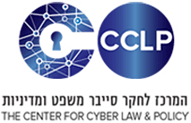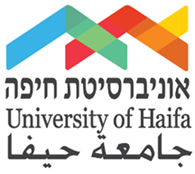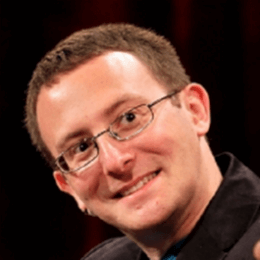

The Center for Cyber, Law and Policy (CCLP) aims to foster critical discussions and promote interdisciplinary research that addresses emerging challenges facing law, technology and the market in cyberspace. The Center was established by the University of Haifa in collaboration with the Israeli National Cyber Directorate.
The CCLP is integrating legal research, computer science, data science, social science and new technologies to develop a set of innovative “toolkits” for policymaking that balance governance considerations, national security, innovation, competition, and civil rights in the digital ecosystem.
The Center focuses on advancing research in the following areas:
- Cyber technology (offense, defense and surveillance): data security; privacy protection; biometrics; cryptography; big data, AI & machine learning; robotics, the Internet of Things
- Cyber and the State: regulatory designs and powers of state agencies in addressing cyber challenges; securing critical cyber networks; evaluating and responding to emergency situations; the need to regulate emerging technologies while simultaneously using new technologies to regulate a changing technological landscape; modalities of co-exercise of cyber regulatory and executive powers by private entities.
- Cyber at the international and global levels: developing international cybersecurity norms, standards and protocols (on defense, surveillance and offense); transnational and international governance mechanisms, institutions and norms for cyber-related commerce and transfer of data, knowledge and value; international and transnational law perspective on cybernetics military conflicts, terrorism and systemic hacking.
- Cyber and the protection of constitutional and statutory rights: the impact of activities in cyberspace on democratic resilience and political activities; human dignity, freedoms of speech, equality, freedom of conscience, association and religion, freedom of vocation; public vs. private legal rights and the public-private interface.
- The impact of cyber on society and the economy: property and contractual rights in the cybernetic ecosystem; competition and antitrust law; technology transfer; cyber exports, consumer protection; monetizing cyber projects; surveillance capitalism and the control and manipulation of media, news (including fake-news) and echo-chambers.
What Makes the Center Unique?
- The Center for Cyber Law and Policy promotes innovative interdisciplinary research in the fields of law, policy and cyber technology, bringing together researchers from the University of Haifa's Faculty of Law, and Departments of Computer Science and Data Sciences. This approach incorporates knowledge, critical thinking skills and innovative perspectives from multiple disciplines that results in a richer understanding of the issues being examined. The impact of the Center's academic research on legal and policy developments is driven by its strategic partnerships with governmental agencies, the business sector and the academic community.
- Being situated in Haifa – the unofficial "capital" of northern Israel offers tremendous advantages. Our researchers, located a healthy distance from Israel's high-tech sector and government agencies that are found primarily in the center of the country, are able to provide a distinctive perspective on the relationship between the "center" and the rest of the country while providing unmediated access to nearby innovation hubs and others scattered throughout the country. We bring a unique spirit of multicultural diversity and high academic standards to our research activities. (We are members of the Network of Centers, which include top-tier research centers in the field of law and technology).
The CCLP is currently addressing a host of highly pertinent issues:
- Regulation of import and export of cyber technologies of dual-use
- Approaching the question of patents (and other IP rights) in cyber weapons - used for defense or offense
- Establishing an Israeli blockchain policy
- Governing AI-driven content moderation, combatting fake news
- Regulation of data-monopolies, and weighing the benefits and risks of Big Data
- Contact tracing during the COVID-19 pandemic -- How can AI be harnessed to help us achieve better regulation? How should we approach hacking campaigns which target potential vaccines?
- Exploring issues related to human enhancement technologies (HET)
Academic Leadership
 Prof. Amnon Reichman is head of the Center for Cyber, Law and Policy, and Associate Professor of Law at the Faculty of Law. He is also co-Principal Investigator (PI) of the Minerva Center for the Rule of Law under Extreme Conditions at the University of Haifa. In 2016, Prof. Reichman served as the President of the Israeli Law and Society Association. He specializes in public law (constitutional law and administrative law), and his areas of expertise include models of regulation, neo-institutionalism, separation of powers, theories of judicial review, human rights, and comparative constitutional and administrative law. He is the founder and chair of the Research Forum on the Rule of Law (Faculty of Law), and heads the graduate program (LL.M.) that specializes in civil and administrative law. He taught and developed the syllabus for the legal segment of the graduate program in Emergency and Disaster Management (Department of Geography).
Prof. Amnon Reichman is head of the Center for Cyber, Law and Policy, and Associate Professor of Law at the Faculty of Law. He is also co-Principal Investigator (PI) of the Minerva Center for the Rule of Law under Extreme Conditions at the University of Haifa. In 2016, Prof. Reichman served as the President of the Israeli Law and Society Association. He specializes in public law (constitutional law and administrative law), and his areas of expertise include models of regulation, neo-institutionalism, separation of powers, theories of judicial review, human rights, and comparative constitutional and administrative law. He is the founder and chair of the Research Forum on the Rule of Law (Faculty of Law), and heads the graduate program (LL.M.) that specializes in civil and administrative law. He taught and developed the syllabus for the legal segment of the graduate program in Emergency and Disaster Management (Department of Geography).
Professor Reichman is the recipient of numerous grants and awards, including the Israeli Science Foundation (ISF). He is a member of the European Group of Public Law, and has taught in several leading institutions, including UC Berkeley (Boalt Hall), Yeshiva University (Cardozo School of Law) and the Center for Judicial Studies (University of Reno, Nevada). He holds an LLB (Cum Laude) from the Hebrew University in Jerusalem (1994), an LL.M. from the University of California at Berkeley (Boalt Hall) (1996) and an S.J.D from the University of Toronto (2000). He completed his post-graduate studies at the Center for Ethics and the Professions at Harvard University (2001). Prior to his graduate studies, Prof. Reichman clerked for the Hon. Justice Aharon Barak at the Supreme Court of Israel (1995).
 Prof. Orr Dunkelman is an Associate Professor in the Department of Computer Science. His research focuses on cryptanalysis, cryptography, security, and privacy, especially in the context of biometric data. Orr's work in symmetric-key cryptanalysis includes analyzing many ciphers and the introduction of several new cryptanalytic techniques.
Prof. Orr Dunkelman is an Associate Professor in the Department of Computer Science. His research focuses on cryptanalysis, cryptography, security, and privacy, especially in the context of biometric data. Orr's work in symmetric-key cryptanalysis includes analyzing many ciphers and the introduction of several new cryptanalytic techniques.
Orr has worked on many of the most widely deployed ciphers such as the AES, KASUMI (used in 3G mobile networks), A5/1 (used in GSM networks), and IDEA. He has published over 80 publications in international venues, including the best paper awards from FSE 2012 and CRYTPO 2012. He has also served on more than 80 program committees, five times as a program chair, is the general chair of EUROCRYPT 2018, and has served on several boards and steering committees (e.g., the IACR board).
Orr earned his Ph.D. in computer science in 2006 from the Technion and a B.A. in computer science in 2000 from the Technion.
 Prof. Tal Zarsky is a Professor of Law at the University of Haifa's Faculty of Law. His research focuses on Information Privacy, Cyber-Security, Internet Policy, Social Networks, Telecommunications Law, Online Commerce, Reputation and Trust. He has published numerous articles and book chapters in the U.S., Europe and Israel. His work is often cited in a variety of contexts related to law in the digital age.
Prof. Tal Zarsky is a Professor of Law at the University of Haifa's Faculty of Law. His research focuses on Information Privacy, Cyber-Security, Internet Policy, Social Networks, Telecommunications Law, Online Commerce, Reputation and Trust. He has published numerous articles and book chapters in the U.S., Europe and Israel. His work is often cited in a variety of contexts related to law in the digital age.
 Prof. Michal Gal (LL.B., LL.M., S.J.D.) is Professor and Director of the Forum on Law and Markets at the Faculty of Law, Haifa University, Israel. She held research and visiting positions at NYU, Columbia, Georgetown, Melbourne, SciencesPo and Lisbon. Prof. Gal is the author of several books, including Competition Policy for Small Market Economies (Harvard University Press, 2003). She has published numerous scholarly articles on competition law issues and has won prizes for her research and for her teaching. She was chosen as one of the ten most promising young legal scholars in Israel (Globes, 2007) and as one of the leading women in competition law around the world (Global Competition Review, 2013).
Prof. Michal Gal (LL.B., LL.M., S.J.D.) is Professor and Director of the Forum on Law and Markets at the Faculty of Law, Haifa University, Israel. She held research and visiting positions at NYU, Columbia, Georgetown, Melbourne, SciencesPo and Lisbon. Prof. Gal is the author of several books, including Competition Policy for Small Market Economies (Harvard University Press, 2003). She has published numerous scholarly articles on competition law issues and has won prizes for her research and for her teaching. She was chosen as one of the ten most promising young legal scholars in Israel (Globes, 2007) and as one of the leading women in competition law around the world (Global Competition Review, 2013).
ABOUT
The Center for Cyber, Law and Policy (CCLP), promotes interdisciplinary research addressing the challenges of activities in cyberspace. The Center was established by the University of Haifa in collaboration with the Israeli National Cyber Directorate.
The CCLP integrates legal research, computer science, data science, social science and emerging technologies, to developing innovating toolkits for policymaking, mindful of governance considerations, national security, innovation, competition and civil rights in the digital ecosystem.
The impact of the CCLP’s work on legal and policy developments is a product of its rigorous and cutting-edge research, strategic partnerships across sectors and institutions, and the unique multi-disciplinary and multi-cultural approach that the University of Haifa embodies.
המרכז לסייבר, משפט ומדיניות (CCLP) עוסק בפיתוח המחקר האקדמי הדרוש בכדי לסייע למדיניות הציבורית המכוונת להתמודדות עם אתגרי הפעילות במרחב הסייבר. המרכז הוקם על ידי אוניברסיטת חיפה בשיתוף עם מערך הסייבר הלאומי בישראל.
CCLP נוקטת בגישה בין תחומית ומשלבת מחקר משפטי, מדעי המחשב, מדעי הנתונים, מדעי החברה וטכנולוגיות חדשניות, לפיתוח "ערכת כלים" חדשה לקביעת מדיניות אשר מתייחסת למשילות, ביטחון לאומי, חדשנות, תחרות וזכויות יסוד במערכת האקולוגית הדיגיטלית.
CCLP מתמקד בקידום המחקר בתחומים הבאים:
- טכנולוגיית סייבר (מתקפה, מגננה ומעקב): אבטחת נתונים; הגנת פרטיות; ביומטריה; קריפטוגרפיה; נתוני-עתק (BIG DATA), למידת מכונה ואינטליגנציה מלאכותית (AI); רובוטיקה, האינטרנט של הדברים.
- סייבר והמדינה: סמכויות רשויות רגולציה וביצוע במרחב הסייבר; אבטחת רשתות סייבר; הערכה ומענה למצבי חירום; רגולציה של תחום החדשנות ובעזרת חדשנות בנוף טכנולוגי משתנה; רגולציה וסמכויות ביצוע קיברנטיות באמצעות או בשיתוף גופים פרטיים.
- סייבר בזירה הבינלאומית והעולמית: פיתוח נורמות, תקנים ופרוטוקולים בינלאומיים לאבטחת סייבר; נורמות, מוסדות ומנגנוני ממשל למסחר קיברנטי וחילופי מידע, ידע וערך. נקודות מבט על המשפט הבינלאומי בתחום סכסוכים הסייבר הצבאיים; טרור קיברנטי ופריצות מערכתיות.
- סייבר והגנה על זכויות חוקתיות וחוקיות: השפעת הפעילות בסייבר על קיימות דמוקרטית וזכויות יסוד; כבוד האדם, חופש הביטוי; שוויון, חופש הדת, המצפון וההתאגדות, חופש העיסוק; אבטחת הסייבר על פעילויות כלכליות ופוליטיות; זכויות משפטיות ציבוריות לעומת פרטיות והממשק שבין הפרטי לציבורי.
- השפעת הסייבר על החברה והכלכלה: דיני תחרות והגבלים עסקיים, העברת טכנולוגיה; יצוא סייבר, הגנה על הצרכן; ייצור רווחים ממוצרים, שירותים ופרויקטים בתחום הסייבר; קפיטליזם מעקבי (Surveillance Capitalism) ושליטה ומניפולציה במדיה (כולל חדשות-כזב), בחדשות ובמרחבי ההדהוד (echo-chambers).
ההשפעה של פעילות ה-CCLP על התפתחויות משפטיות ומדיניות נובעת מהחידוש שבמחקרי המרכז, המצויים בחזית המדע בתחומי הממשק שבין משפט, מדיניות וטכנולוגיה, השותפויות האסטרטגיות בין מגזרים ומוסדות, והגישה הרב-תחומית והרב-תרבותית הייחודית שמאפיינת את אוניברסיטת חיפה.

